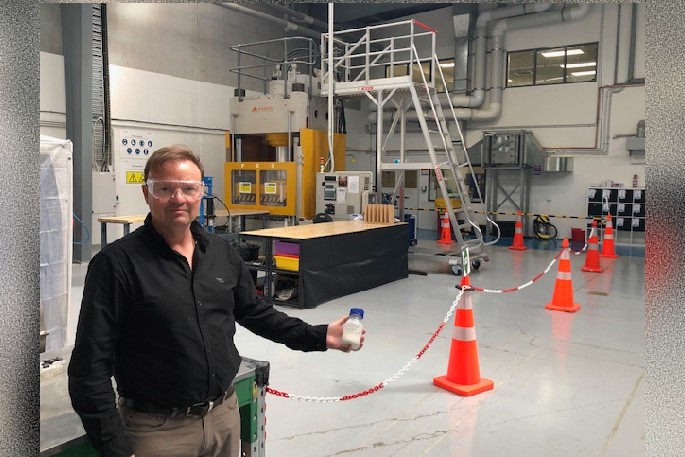This Content Is Only For Subscribers
In Auckland, tech startup company Nilo is working on a mission: to end the global waste crisis.
The company has been developing technology to repurpose all plastic waste, including ocean and landfill plastics, into industrial adhesives for the manufacturing sector.
Recently, Nilo celebrated a significant milestone, securing NZ$13 million in Series A funding led by the Inter IKEA Group and Pacific Channel.
Managing director Tim Williams acknowledged the challenging process of securing funding saying, “I mean, the market’s been a bit quiet, so it took a bit longer (to raise the capital) than we’d hoped, about eight months. But look, it was, you know, a successful capital raise.”
Since the announcement, interest in Nilo has surged. “We’ve actually, sort of since the press release has gone out, had inquiry from a few other funds and individuals saying if we take a bit more capital. So we’re sort of thinking about that at the moment.” Tim says.
A Global Network of Support
With Nilo’s diverse pool of investors spanning New Zealand iwi, and contributors from Australia, Japan, Singapore, Germany, and the UK, it reflects a shared commitment to tackling the plastic waste crisis. The company’s strong leadership has been instrumental in this success and Tim credited his mentor from Japan, Mr. Mamori Taniya, for building essential connections over the years, staying “He was instrumental in sort of connecting capital over the last couple of years. So I think the strength of the board and the team, as you know, Mike Eng is our very seasoned project manager.”
Transformative Technology
Nilo’s patented process offers a clean, low-energy solution for converting all types of plastic into adhesives. This innovation also has the potential to integrate other waste streams, such as textiles, wood, and e-waste, amplifying its environmental impact.
Tim breaks down how it works and says “So if you look at what happens to plastic waste today and you’re really honest with yourself, 70% or so goes to landfill or finds its way into the environment. So I think we’re all going to agree that that’s not great. 20% is burnt for energy. Now, when you burn plastic, just under one kilogram of plastic releases just under three kilograms of carbon dioxide. So burning plastic to make energy, and because plastics are heterogeneous in nature, you make power but not very efficiently because your feedstocks are constantly changing, and you produce a colossal amount of CO2.
He says “So it’s really not hugely different than a coal-fired power station. Long-term, I think either the way that we produce energy from burning plastic needs to be cleaned up in time, or it’s not really a long-term solution.”
So what’s next for Nilo?
With the Series A funding, Nilo plans to scale its operations. Tim says “This sort of gives us 18 months runway, which enables us to expand on what we’ve got. We’ll be able to, by about October 2025, make about one tonne of adhesive in our pilot plant on the North Shore.”
Nilo’s vision aligns seamlessly with global clean tech trends, offering a sustainable alternative to traditional recycling and incineration methods. As Tim put it, “Plastic recycling itself, right? And now I guess with electric car batteries, it’s like you never get it right the first time around, so you always have to optimise and try.”
A Global Problem, A Local Solution
Nilo is showing how local innovation can address global challenges to shape a cleaner, more sustainable future—one adhesive at a time. But, the journey is just beginning and Tim says “It’s something which they (Nilo and its team) are deeply passionate about getting it right and making a big impact, and I share the same sentiment.”



